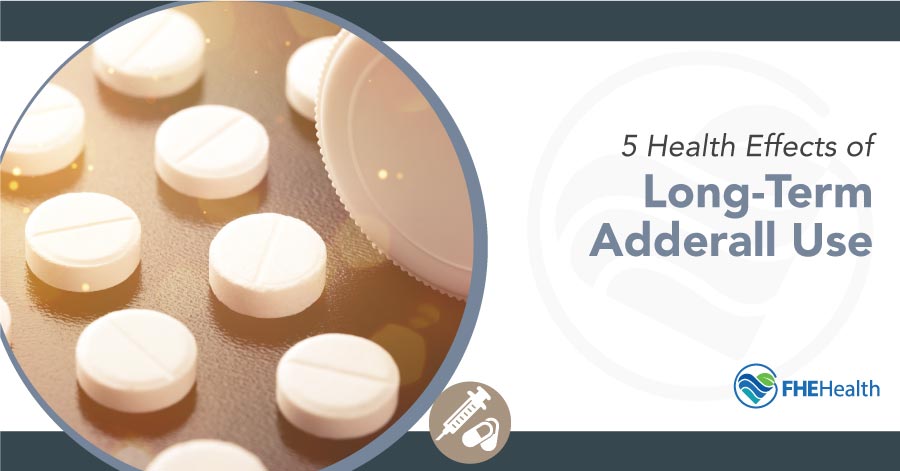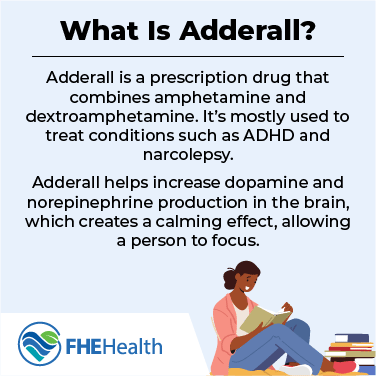
Prescription stimulants such as Adderall are often prescribed to children and adults diagnosed with attention-deficit hyperactivity disorder (ADHD). The medication usually has an immediate and apparent positive impact, allowing individuals to focus better and be more efficient. However, many people fail to think about the long-term plan.
As there’s no cure for ADHD, should someone stay on Adderall forever? After long-term use, prescription Adderall can feel like part of your daily routine. Still, it’s essential to consider the consequences for your overall health. Most notably, individuals should ask themselves what the long-term side effects of Adderall use on the brain can be.
What Is Adderall?
Adderall is the brand name for a prescription drug that combines amphetamine and dextroamphetamine. It’s mostly used to treat conditions such as ADHD and narcolepsy. Other popular brand names for this drug are Mydayis and Ritalin.
All versions of this drug help improve focus and reduce impulsivity. This is because amphetamine and dextroamphetamine are central nervous system stimulants that help increase dopamine and norepinephrine production in the brain. Both dopamine and norepinephrine have a calming effect, allowing a person to focus.
Is Adderall Meant for Long-Term Use?
In recent years, publications such as Quartz have highlighted how Adderall use has expanded beyond the classroom and into the workplace. An article discusses how millennials who used Adderall in school have continued relying on it at work, highlighting stimulant use normalization. This shift has raised new questions about long-term health, dependence and the pressure to perform, concerns now echoed by medical professionals and former users alike.
Millions of people are currently taking Adderall without thinking of the long-term side effects of the medication. Most drugs are prescribed with the intent of weaning off them in the future. But if a person becomes reliant on Adderall for their everyday functioning, there’s no natural endpoint to stop taking it.







